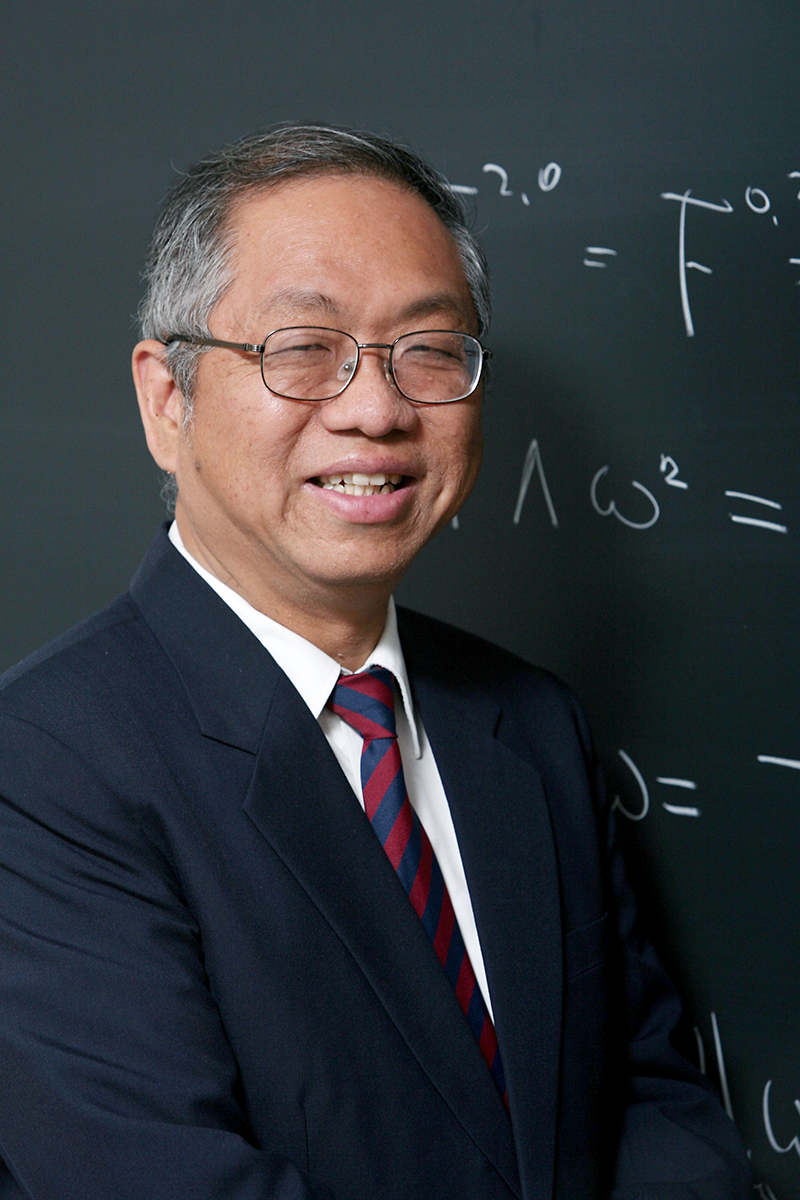String Theory and the Geometry of the Universe’s Hidden Dimensions
Exploring the Hidden Dimensions of our Universe Through Geometry
Shing-Tung Yau
Thursday, April 26, 2018 | 7:00pm
UCI Student Center, Crystal Cove Auditorium
Historically, advances in mathematics and our understanding of the physical universe have often gone hand in hand. Come hear from one of the world’s most distinguished mathematicians how this close interplay has continued to deepen in recent times with new mathematical breakthroughs in geometry and exciting physical theories that propose extra hidden dimensions in our universe.
 Shing-Tung Yau is Harvard University’s William Caspar Graustein Chair Professor of Mathematics and Professor of Physics. His worldwide influence on mathematics and math/science education has few equals. He has made seminal contributions in many different fields of modern mathematics and also has had significant impact in physics, computer science, and technology. His many celebrated achievements include laying the mathematical foundation of Einstein’s general theory of relativity and many of today’s physical theories of spacetime with extra dimensions. Throughout his career, he has been a tireless educator having initiated a number of math and science competitions at the high school and university levels, established seven world-class mathematical research centers worldwide, and also wrote three noted popular science books. Dr. Yau was born in 1949 in Guangdong, China. He earned his Ph.D. from UC Berkeley in 1971, was appointed Professor at Stanford University in1974, and joined Harvard University in 1987. He is a member of the U.S. National Academy of Sciences, the American Academy of Arts and Sciences and the Academia Sinica. He has been awarded numerous top prizes including the Fields Medal, the MacArthur Fellowship, the Wolf Prize, and the U.S. National Medal of Science.
Shing-Tung Yau is Harvard University’s William Caspar Graustein Chair Professor of Mathematics and Professor of Physics. His worldwide influence on mathematics and math/science education has few equals. He has made seminal contributions in many different fields of modern mathematics and also has had significant impact in physics, computer science, and technology. His many celebrated achievements include laying the mathematical foundation of Einstein’s general theory of relativity and many of today’s physical theories of spacetime with extra dimensions. Throughout his career, he has been a tireless educator having initiated a number of math and science competitions at the high school and university levels, established seven world-class mathematical research centers worldwide, and also wrote three noted popular science books. Dr. Yau was born in 1949 in Guangdong, China. He earned his Ph.D. from UC Berkeley in 1971, was appointed Professor at Stanford University in1974, and joined Harvard University in 1987. He is a member of the U.S. National Academy of Sciences, the American Academy of Arts and Sciences and the Academia Sinica. He has been awarded numerous top prizes including the Fields Medal, the MacArthur Fellowship, the Wolf Prize, and the U.S. National Medal of Science.
Please RSVP at https://ps.uci.edu/Yau
Parking for this event is available for $10 at the Student Center Parking Structure located on the corner of Pereira Dr. and West Peltason. This lecture is free and open to the public. School groups and media representatives should contact Tatiana Arizaga at tarizaga@uci.edu.